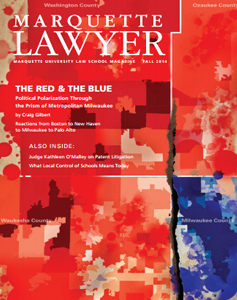Reflections on Judicial Contract Interpretation and the Boden Lecture
 This week in my Contracts class we are discussing how to interpret a contract — that is, how to give contractual language meaning. This discussion inevitably focuses on how courts interpret contracts, because Contracts casebooks primarily examine principles of contract through case law. Cases do, in fact, provide a useful lens through which to study contract interpretation, for they allow an examination of courts’ goals and tools in approaching conflicting arguments about how to interpret an ambiguous term. Yet we also considered judicial interpretation of contracts from a policy perspective.
This week in my Contracts class we are discussing how to interpret a contract — that is, how to give contractual language meaning. This discussion inevitably focuses on how courts interpret contracts, because Contracts casebooks primarily examine principles of contract through case law. Cases do, in fact, provide a useful lens through which to study contract interpretation, for they allow an examination of courts’ goals and tools in approaching conflicting arguments about how to interpret an ambiguous term. Yet we also considered judicial interpretation of contracts from a policy perspective.
Specifically, in light of Professor Robert Scott’s Boden lecture “Contracts Design and the Goldilocks Problem,” I asked my Contracts students to reflect on the wisdom of judicial determination of the meaning of ambiguous contractual language.

 How did we get where we are today? Consider that a central question underlying many of the stories in the Fall 2014 Marquette Lawyer magazine, being mailed this week and now available online.
How did we get where we are today? Consider that a central question underlying many of the stories in the Fall 2014 Marquette Lawyer magazine, being mailed this week and now available online.